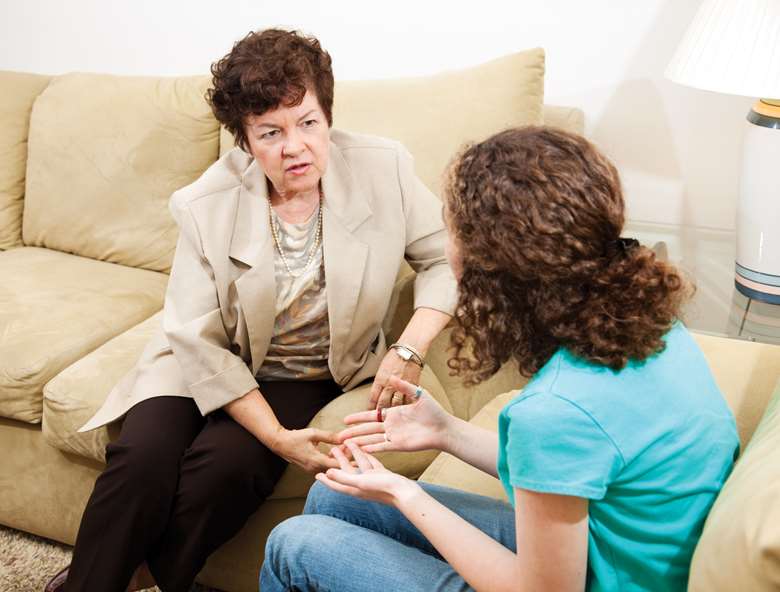Now is the time to act on abuse
Barbara Hearn
Monday, May 11, 2015
Professionals cannot wait for the child sexual abuse inquiry report to improve understanding of the issue.

As a new government emerges and political parties decide on new battlegrounds, we can be assured that child sexual abuse has been accepted as a non-party political issue.
All parties support the need for action. This is reflected in the letters signed recently by cross-party MPs calling for a review of the decision not to prosecute Lord Janner and as far back as 2012 when the call for an overarching child sexual abuse inquiry began.
The Conservative manifesto affirmed its commitment to the independent inquiry into child sexual abuse, led by New Zealand judge Lowell Goddard.
Some politicians have set an example. Their actions in effect say there is no place for boundaries to limit what we need to do to protect children and prevent abuse.
Their announcements in support of mandatory reporting including raising the non-reporting bar to a crime; recognising child sexual abuse as being a "national threat" on a par with serious and organised crime; the call for joined-up investigations across our nations as well as some recognition of the urgent need for real central police investigation capacity, are all welcome.
The Goddard inquiry has a long, slow, tough, complex task ahead. It will take time. But children do not have time to wait. A three-year-old being abused today could be six before the inquiry reports and in secondary school before policy changes and practice adjusts. An entire childhood could disappear.
To make changes to policy, to practice and to attitudes cannot wait for this mammoth inquiry to report. Its voluminous brief cannot become an excuse for inaction. Anyone who uses the phrase "we have to wait until the inquiry reports" should think hard about the implications of such a throwaway response.
Urgent need for action
There is an urgent need for change and improvement for children today, as well as justice for those who suffered over past decades.
Can Goddard manage all this simultaneously? Should today's children's experiences be prioritised over those of the abused child of yesteryear? Running "peace and reconciliation" hearings alongside police investigations into the historic cases while inquiring into the ability of current institutions to fulfil their duty of care to today's children may be a necessary separate activity.
Research is needed into abuse within institutions. While some say abuse takes place mainly in families, we do not actually know if this is true. Available evidence on prevalence while good is not sufficient. We need more evidence.
There must be subtlety and sensitivity in any strategy to respond to child sexual abuse if we are to achieve real change. Our appreciation of what is needed remains rather unsophisticated.
We can liken sexual abuse to cancer, once referred to as "the Big C". We may now talk openly about child sexual abuse, but we have not yet developed a good enough "fit" between the range of support and interventions and the diverse manifestations of what we give the single title "child sexual abuse".
For example, there is a world of difference between touching outside clothing and sexual assault by penetration, but they both fall within the current broad and rather clumsy definition of child sexual abuse.
Once cancer treatment was simply surgery; now it is a diverse cocktail of interventions more closely matched to the manifestation and patient experience. We need the same for child sexual abuse.
More research is needed to determine what interventions will do least damage and deliver greatest benefit according to type of abuse and exploitation. Professionals need help not blame to ensure the intervention matches the child's needs.
Better still is investment in prevention. The NSPCC "Underwear Rule" and the Dotcom Foundation which gives children skills to cope with risky situations are examples of prevention through learning.
Making personal, social and health education a statutory part of the school curriculum would assure parents and the public that all children were learning about keeping themselves safe.
Cultural changes
Finally, our not very child-friendly culture must adapt to accept that:
- Typically, children tell the truth about abuse and exploitation. To build our attitudes and services around the possibility that children may fabricate a story is dangerous. The number of cases of false allegations is minute.
- An informed critical eye needs to look into all institutions and settings where children spend time. Reducing the risk of abuse should be treated as the foremost consideration for all institutions. Thus, private insurers and registration bodies have to act to reduce risk. They must not dismiss concerns of abuse and exploitation as not within their remit. Reputation, financial gain nor commercial interests must never override taking action to protect children and prevent abuse. The penalties should be significant for those who do ignore abuse, neglect and exploitation.
- An adult who is seen by parents, children and colleagues as "so nice" and yet is suspected of abuse may have been grooming the adults too. Adults can find their own failure to protect children deeply distressing. But they must not put their heads in the sand about what may be happening in an institution even if they placed the child there.
- Poor responses to children who are sexually abused or exploited leave a scar for life.
Barbara Hearn OBE is a member of the first child sexual abuse independent inquiry




